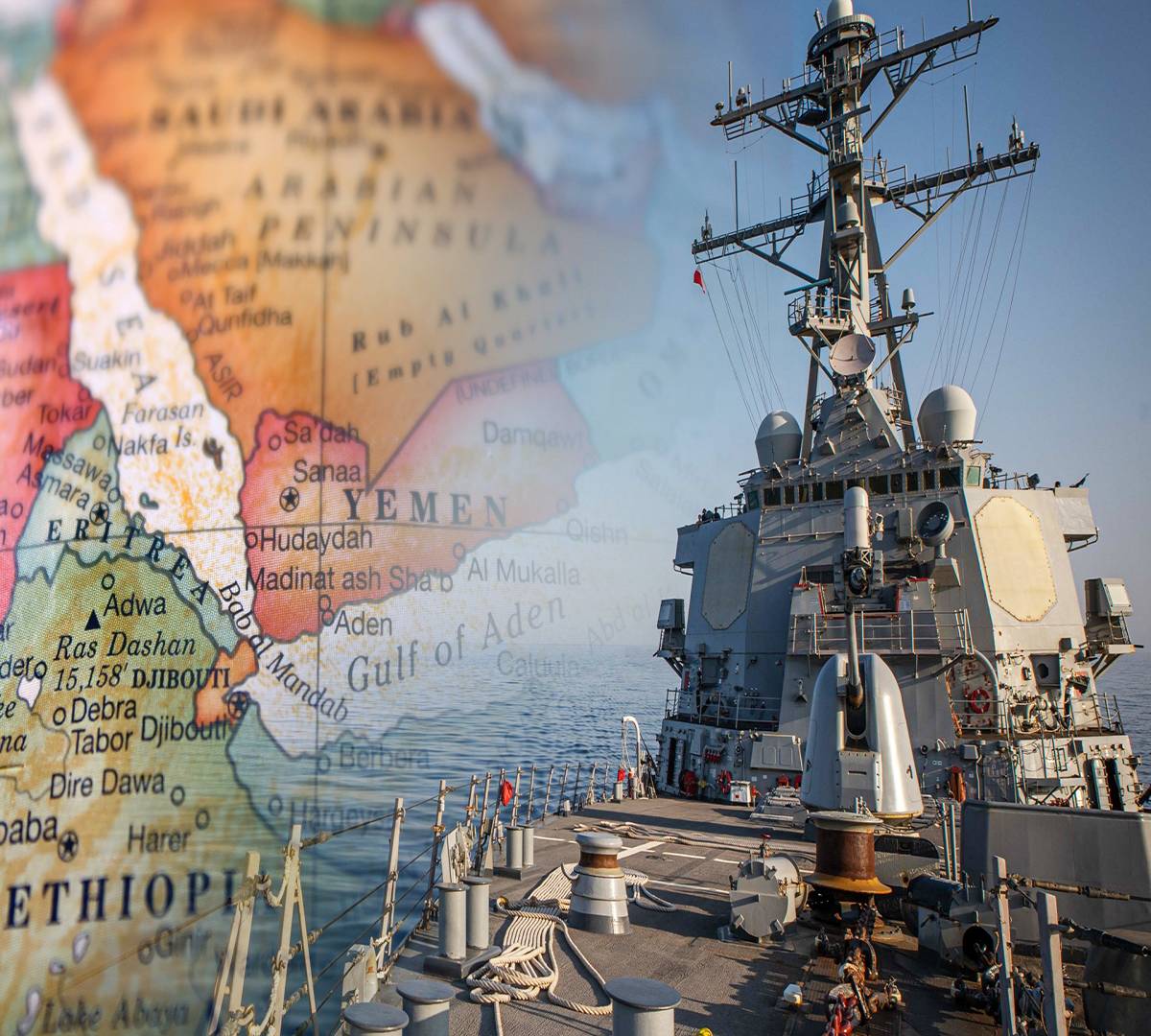1809 Views
Yemen’s Red Sea Coup: Is America Losing the Naval War?
Months after the onset of the Gaza war and Yemen’s entry into the frontlines in support of the Palestinian people, the naval battle in the Red Sea has reached a new and highly strategic phase. This phase began with a recent statement from Sana’a declaring that any ship connected to Israeli ports would be targeted. The confrontation has now evolved beyond conventional military conflict and entered a broader geopolitical, economic, and legal realm, challenging the strategic standing of both the United States and Israel. What we are witnessing is a full-scale asymmetric naval war—one that imposes maximum pressure on Western and Israeli interests at minimal cost.
From Military Clash to Geopolitical Warfare
Yemen’s threats against all ships affiliated with Israel—regardless of their flag or nationality—signal a transformation of the conflict from classic warfare into a geopolitical struggle. By effectively declaring a maritime no-go zone for any commerce with Israel, Sana’a has not only dealt a blow to Israel’s economy, but extended the implications of its actions into sectors like global shipping, insurance, international law, and energy security.
By striking non-Israeli vessels, Yemen aims not just to punish Israel but to disrupt global supply chains and create powerful leverage against Israel’s backers—particularly the U.S. This new kind of geopolitical threat is pushing Washington to reconsider its regional posture.
A Direct Challenge to U.S. Interests
Yemen’s involvement in the Red Sea conflict has now endangered both U.S. commercial and military interests. In the past, American support for Israel was largely symbolic or military. But today, that same support risks becoming a direct threat to the West’s vital interests, especially in securing global trade routes.
The U.S. is compelled to act in order to preserve freedom of navigation—but this also translates into direct alignment with Israel’s logistical lifelines. In essence, Washington faces a strategic dilemma in which both choices come with heavy costs. Yemen has skillfully used rising shipping and insurance costs as an economic weapon to pressure the U.S. and its allies.
Ansarullah’s Economic and Psychological Power Play
Yemen’s Ansarullah movement has unleashed a remarkable economic and psychological offensive. By targeting commercial shipping, it has driven up insurance and logistical risks, forcing major carriers to reroute through the Cape of Good Hope.
Though costlier and slower, this disruption acts as a low-cost, high-impact asymmetric tactic—essentially a form of hybrid warfare that leverages economic and psychological pressure for political gain.
This escalation also reinforces the broader Resistance Axis as a unified regional actor. Yemen’s actions show that resistance is not confined to land borders; naval tools can be equally effective in pressuring Israel and its allies.
Washington’s Strategic Indecision
The U.S. now finds itself in a strategic bind: continued unconditional support for Israel comes at serious economic and security costs, while reducing that support would signal a retreat of Western dominance in the Middle East.
Washington is therefore likely to pivot toward diplomatic options, as continued naval conflict with Yemen threatens to spiral into broader global economic crises.
The Inevitable Beginning of Diplomatic Contact with Sana’a
Ansarullah’s escalating operations and their direct impact on global trade and energy security have compelled Washington and other major powers to reckon with the group’s growing status as an independent actor. While contacts may remain indirect or secretive, signaling readiness to engage with Sana’a may be the only viable option to defuse the mounting crisis.
This signifies Yemen’s formal entry into regional diplomacy—something previously ignored or denied. Some analysts now predict that if the conflict continues, Oman may serve as a mediator to guarantee maritime security.
Conclusion
The new phase of Yemen’s maritime warfare marks a game-changing shift in the region. It has demonstrated how smaller powers can use asymmetric tools to challenge the interests of great powers.
This battle has not only shaken Israel’s economy and security but has also undermined America’s strategic posture. If trends continue, the U.S. will likely be forced to recognize Ansarullah as a legitimate regional actor and pursue diplomatic solutions to end the crisis.
*Translated by Ashraf Hemmati from the original Persian article written by Mohammad Saleh Ghorbani

Comment
Post a comment for this article